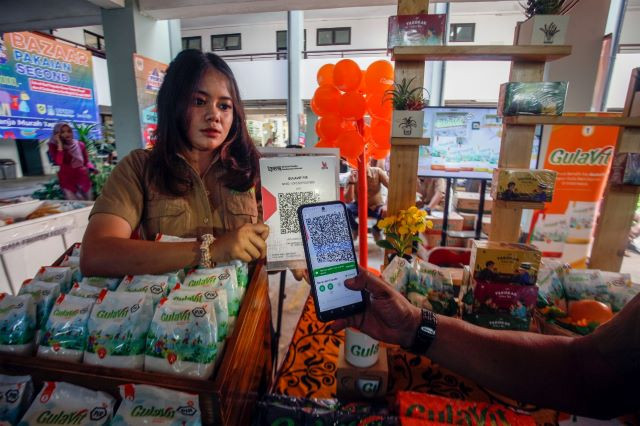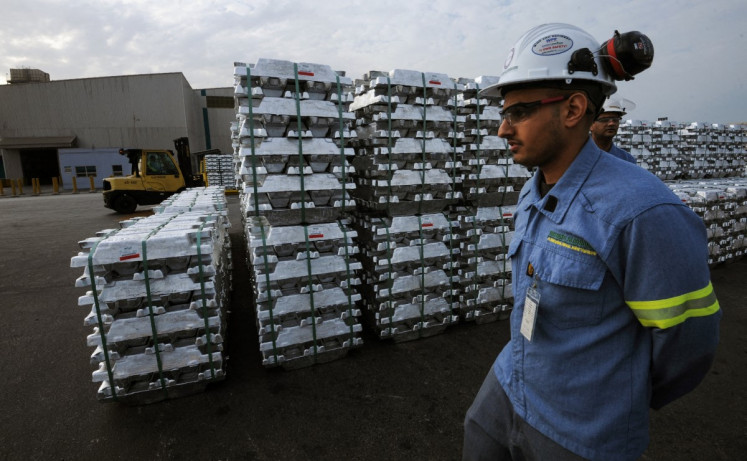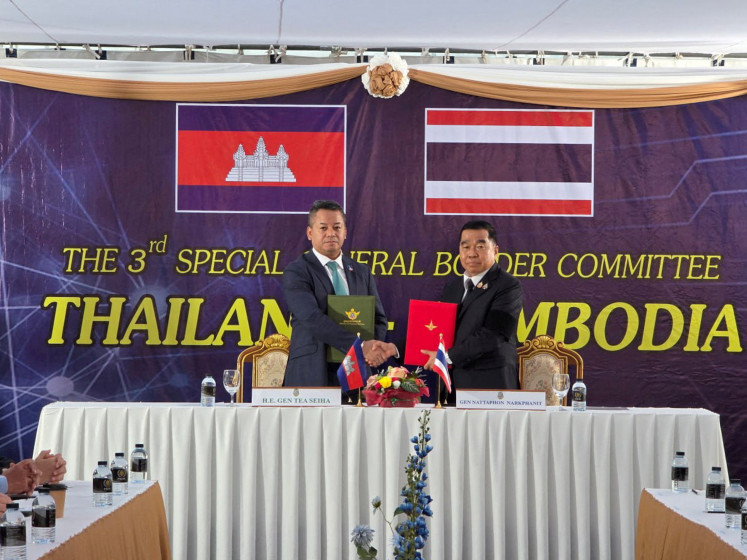Popular Reads
Top Results
Can't find what you're looking for?
View all search resultsPopular Reads
Top Results
Can't find what you're looking for?
View all search resultsInvest in women-led MSMEs to drive climate transition
Increased climate adaptation and mitigation investments are necessary to avert the climate crisis. It is even more important that women-led MSMEs – whose access to funding is limited by key barriers – receive much-needed climate transition finance,
Change text size
Gift Premium Articles
to Anyone
The United Nations has heralded the era of global boiling, as the world witnessed more extreme weather than ever before.
Here in Asia-Pacific, the threat posed by the climate-fuelled disasters is especially severe. Not only is Asia-Pacific the most disaster-prone region in the world, it is also home to 75 percent of individuals who are exposed to natural disasters globally
As climate disasters become more frequent and severe, it's critical to safeguard the livelihoods of the most at risk, particularly women in the developing Asia-Pacific region.
Hindered by gender biases, a lot of women in these areas lag behind in healthcare, education, and economic opportunities. Extreme weather that disrupts paid work increases the burden on women to harvest and procure sufficient food for their families. This is worsened by the fact that women have lower savings to help them tide through financial emergencies.
To avert the climate crisis and achieve net zero targets by 2050, developing economies need climate investments of US$2 trillion annually by 2030 – which represents a fivefold increase from current investment amounts, according to the IMF. With just seven years left on the runway to 2030, investors need to be bold, purposeful and intentional with their climate investments to catalyse maximum positive impact.
Micro, Small and Medium enterprises (MSMEs) are the backbone of Asia-Pacific region's economy. In 2021, MSMEs accounted for an average of 97 percent of all enterprises and contributed more than 60 percent of the national labour force, contributing $15 trillion to Asia-Pacific’s gross domestic product (GDP).
In particular, women-led MSMEs constitute a significant portion of MSMEs in the Asia-Pacific region. In East Asia and the Pacific, women own 50 percent of all micro-enterprises and 59 percent of the small and medium-sized enterprises (SMEs). Given how crucial women-led MSMEs are to Asian economic growth – there lies a prosperous opportunity to empower women business owners to better cope with the climate crisis, and to support climate action goals.
Research from around the world has consistently proven that women leaders are more likely to support climate action compared to their male counterparts. A 2022 study by the European Investment Bank (EIB) on female entrepreneurs in Europe found that women-led firms make more effort to curb emissions and have better results for environmental, social and governance (ESG) indicators.
Similarly, women-led MSMEs are likely to implement eco-friendly practices while maintaining profitability. Their grassroots efforts are crucial in encouraging broader business and societal shifts towards the necessary transition to address the climate crisis.
Despite a strong case for investing in women-led small businesses, they face major resource gaps. Women-led MSMEs lack critical knowledge of climate risks and access to adaptation funding, with systemic gender biases limiting their skill sets, knowledge base, and financial assets.
This creates a tough barrier to accessing necessary credit, as women are often less equipped to meet traditional collateral requirements for loans, leaving them underserved by financial institutions.
To bridge this gap, governments could provide R&D grants for climate adaptation innovations for women-led MSMEs, encouraging the use of emerging technologies. Additionally, financial institutions might adapt their collateral requirements, accepting non-traditional assets like insured inventory or jewellery, to improve financial access for women entrepreneurs.
Given the higher risks associated with such assets, it's essential for governments to classify women-led MSMEs as a lending priority and to create policies that incentivize lenders to accommodate these risks. Supporting measures, including subsidies for approved climate adaptation technologies and tailored training programs, will further empower women-led MSMEs and enhance their chances of successful adaptation and growth.
The escalating climate crisis necessitates immediate funding for adaptation and mitigation. Women in the Asia-Pacific, already disadvantaged in resource allocation, are especially hard-hit by these challenges. However, they are also at the forefront of sustainable practices, positioning them as key players in climate response.
Leveraging the role of women-led MSMEs in initiating grassroots climate action can lead to wider benefits, such as inclusive growth and better gender parity. But their impact is hindered by limited access to knowledge and financing.
It's crucial that governments prioritise these enterprises in lending strategies and that financial institutions accommodate them by accepting alternative collateral, thereby unlocking the potential of this vital but overlooked group.
***
The writer is chief product officer at AVPN











